A Tribute to Our Local Farmers
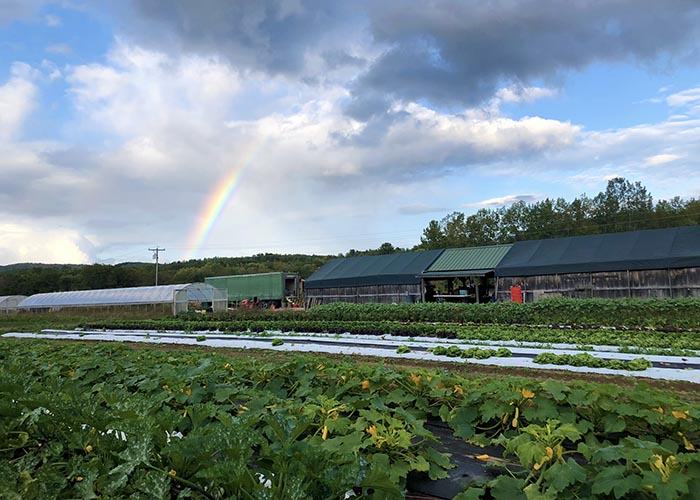
Throughout the COVID-19 crisis, countless unsung heroes have emerged. Coming together in our time of need, medical personnel, grocery store employees, and many other essential workers have ensured that our basic needs are met in spite of stay-at-home and even shelter-in-place orders. Working tirelessly day after day, farmers continue to do what they have always done to keep us all nourished: planting nutritious fruits and vegetables, and raising healthy livestock.
We spoke with a few of the incredible farms in our local area to learn more about their operations, while striving to understand what their struggles are in these uncertain times. Now, more than ever, is time to band together and support those holding our local food community together.
In order to help our local farmers, consider spending a portion of your grocery budget on fresh produce, dairy, and/or meat from within your community. Green Wagon Farm and Stonewall Farm now offer call-ahead orders for contact-free shopping. Archway Farm utilizes online orders and a self-serve farm store to eliminate contact between customers and employees. Other farms, like Manning Hill Farm, have implemented changes in the farm stores; they are also available in co-operative stores, such as the Monadnock Food Co-op. By shopping within the Monadnock region, you can purchase fresher and more nutritious food, while putting your money back into the local economy.
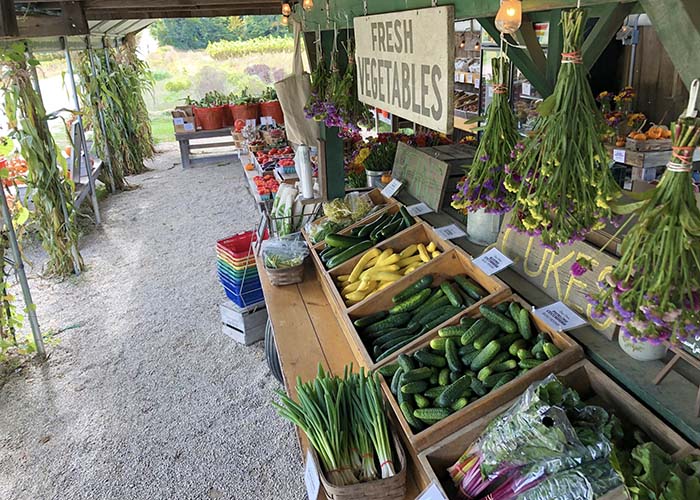
“I think the greater Keene area is doing a great job responding to the crisis and helping the community,” explains Kaisa Jarrell of Green Wagon Farm in Keene, NH. For over 25 years, they have grown more than 40 different crops of vegetables, fruits, and flowers.
“We are going to come out stronger than ever,” Kaisa continued. “We live in the most incredible community, and our driving force is continuing to support them… even if we need to change our tactics and evolve as a result of this pandemic.”
There are a number of programs, both throughout the Monadnock region and New England that are focused on helping farmers making these changes. Both the Cheshire County UNH Cooperative Extension and the UNH Extension have been committed to helping New England farmers adapt with weekly webinars regarding business practices, changing safety protocols, and establishing funding throughout these challenging times.
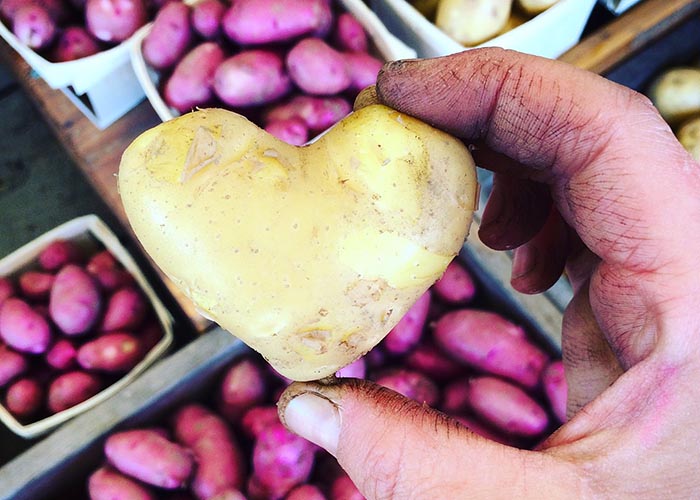
“There has been a sudden surge in demand for local food, but our infrastructure is not currently capable of meeting that demand,” explains Julie Davenson, the Executive Director of Stonewall Farm in Keene, NH. “Normally, [it is estimated that] consumers purchase 5% of their food through local channels. This has caused us to lose many farms over the years, especially dairy farms that are the anchor of the local agriculture economy. These losses to our local food infrastructure are now leaving us vulnerable and far less agile to respond to crises like this pandemic.”
At Stonewall Farm, they are trying to drastically increase their production in order to keep up with the current needs of the community. They are also expanding inventory of their farm store, supplementing with food grown at other farms, especially those who have lost their markets or are unable to sell directly to consumers at the moment. By offering phone orders and contactless shopping, they are able to safely distribute the food to their customers. “We are proud of how quickly we adapted to fill a need for our community to find nutrient-dense food and shop in a safe environment,” says Julie. “We are also proud we can assist other farmers, food producers, and even local restaurant owners by selling their products in our store.” Normally, Stonewall Farm hosts a number of events and educational programs, but those have been temporarily postponed for the time being.
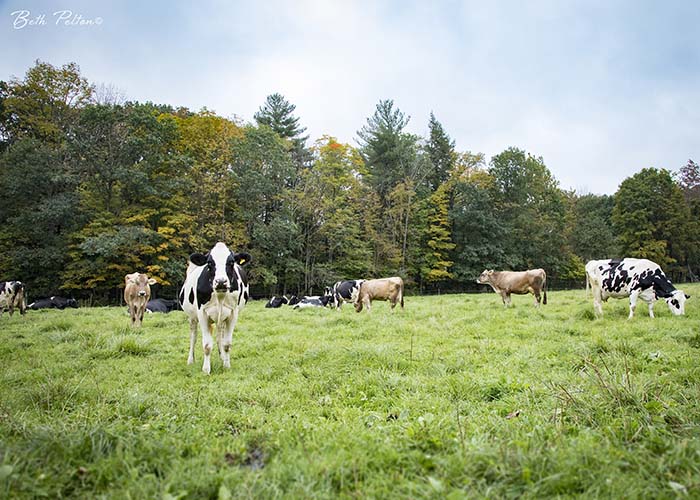
The farms in the Monadnock area are committed to providing the region (and beyond) with nutritious food through sustainable practices while implementing new safety protocols and procedures. “It is certainly going to be a bit different this year,” Kaisa remarks. “But different can be good!” This year the Green Wagon Farm is going to be accepting credit cards and EBT cards, which is a new development for them in an effort to offer contactless shopping experiences. They are also working to put an online ordering system in place. “We are still trying to figure out how exactly it is going to look, I truly believe it is going to continue to evolve over the spring and summer months,” she says. “The driving force behind all of our efforts is supporting the local community. Thankfully, my aunt is a talented seamstress, so the entire staff will be wearing masks. Gloves will be the new normal for the foreseeable future.”
Moving forward with credit card processing is an important step for many local farming businesses. Archway Farm, located in Keene, NH, has implemented an online store to allow customers to shop and purchase their meat. Then it will be neatly packaged and available to them in the farm store for pick-up. “In the store we offer multiple ways to pay, including cash, personal check and no touch electronic options Venmo and PayPal,” explains Mark Florenz, the owner of Archway Farm. In addition to their pasture raised pork products, has brought in additional food such as maple syrup from Faber Family Sugarhouse in Hancock, NH; jams and preserves from Cheshire Garden in Winchester, NH; and lamb from Brookfield Farm in Walpole, NH to make high-quality, local nutrition more accessible to the consumers and allow the producers another opportunity to sell their products.
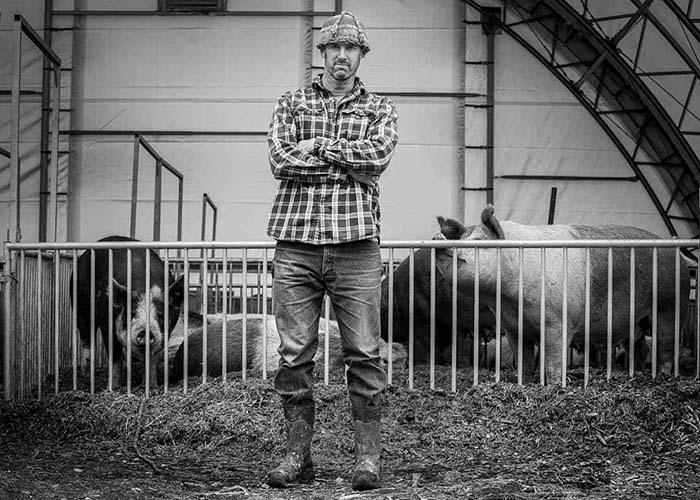
Another local farm, Manning Hill Farm in Winchester, NH, has had to re-calibrate their distribution process because the local restaurants and coffee shops that normally purchase their dairy products and grass-fed meats were closed due to the governor’s orders. Despite the change in distribution, they are still working to produce additional milk to keep up with the demands of the local community. “We are now processing an extra vat of milk on our bottling days to try to keep up with the high demand,” explains Sarah Costa, the co-owner of Manning Hill Farm. “We had to come up with new strategies for stores to accept our glass bottle returns. We depend on these bottles weekly, so it was a high priority for us.” (Fun fact: Sarah was the Sales Manager at The Cheshire Horse for over four years before she transitioned to farming full time!)
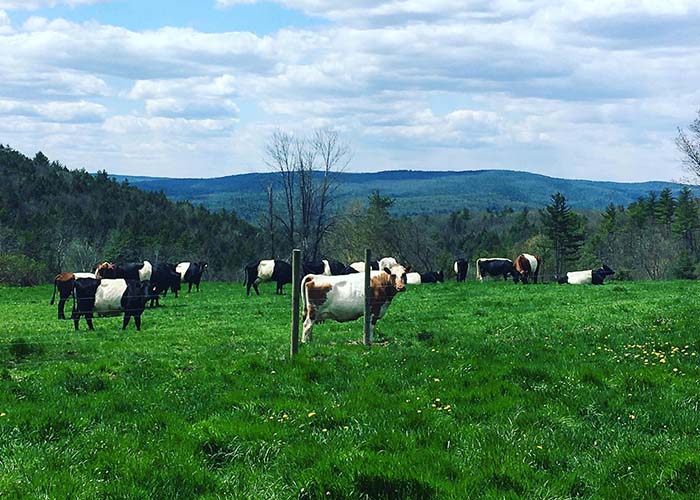
Additionally, Manning Hill Farm has had to make changes to their farm store. “Due to the small space of the store, we needed to put some restrictions on how we operate,” says Sarah. “We are now only allowing one customer in the store at a time and frequently disinfect the surfaces.” But they are pleased to still be able to serve the community and distribute milk, their signature product, to local families. “It’s just so important. Local food is better for the environment, keeps land open in the area you live, and helps the local community in so many positive ways. Shopping locally is truly so important; the money you spend in your community creates a ripple effect and truly transforms the local economy.”
“Instead of relying on chain grocery stores, I wish more people relied on the local farmers and the local community,” Kaisa concluded, “We are growing really valuable food, you know exactly where it came from, and, in many cases, you even know the people who are growing it. We are always trying to improve our techniques and there is always something new to learn. Each year comes with its own challenges, but at the end of the day we want to make sure that we take care of our environment. Without taking care of the land, continuing to grow on our land wouldn’t be possible.”
In this uncertain time, there is something that we can rely on – the strength and resilience of our local farming community. As the farms ramp up production in our times of need, it is readily apparent that we need to support them as a vital piece of our rural economy, and not just in times of crisis. Together, we will get through this and come out stronger and healthier on the other side of this pandemic by eating the food grown by our local farmers.
